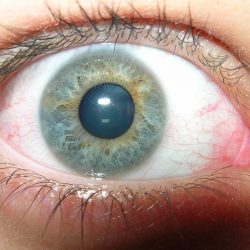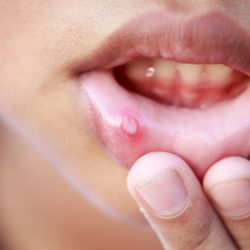For almost half a century now, we’ve been setting our watches back and forward an hour to coincide with seasonal changes. This habitual act has become completely ingrained and has become something of a custom, particularly for generations that have only known this twice-yearly time change. As a result, they have never perceived the world in the natural rhythm of its authentic time over a complete annual cycle. The changeover to summer or winter time is a biannual event that disrupts our biological clock. This shift, although seemingly minor, can have repercussions on our sleep, immune system and appetite. Fortunately, there are natural solutions to minimise these effects and help us adapt to this change harmoniously.
The origins of the time change
In 1940, during the Nazi occupation, the annexed zone conformed to German time so that all the territory of the Reich respected a certain uniformity. This practice was abandoned in the enthusiasm of the Liberation, but unfortunately returned to the forefront a few years later, in the context of the 1973 oil crisis.
Daylight saving time was in fact reintroduced on 28 March 1976, with the aim of reducing the need for lighting at the end of the day, so that the population consumed as little electricity as possible. This system involves adjusting official local time by adding one hour to the so-called “normal” time zone, for a period generally running from early spring to mid-autumn, which has the effect of delaying the time at which the sun rises and sets. This means that France artificially gains an hour of sleep, only to lose an hour of natural light in the evening.
The idea of shifting the time between summer and winter to avoid consuming too much electricity is not new, but it seems far less clever than it used to be. Nowadays, Europeans live later into the evening and consume more energy as a result. In fact, they are no longer making any savings.
What are the effects of the time change on the body, and how can they be reduced?
The biological clock operates over 24 hours and is based on man’s natural circadian cycle. This internal clock regulates the secretion of melatonin, known as the “sleep hormone”, and the activity of the immune system.
However, this time difference disrupts the body, leading to a problem of desynchronisation of our circadian clock. Rather than improving the quality of sleep, it creates a sleep debt specific to the time change. This artificial change in time actually disrupts the functioning of the biological clock and can lead to a weakened immune system, a disturbed appetite and sleep disorders.
Sleep disorders: How can you sleep better despite the time change?
Disruption of the sleep-wake cycle often leads to insomnia, waking up at night and feeling more tired when you wake up. Here are some natural solutions to help you get back to a good night’s sleep:
Tryptophan: A serotonin precursor to help you fall asleep
Tryptophan is an essential amino acid involved in the production of serotonin, a neurotransmitter that regulates mood and makes it easier to fall asleep. Numerous studies have shown that an increase in tryptophan concentrations in the brain results in an increase in the release of serotonin. It is found naturally in :
- Bananas
- Eggs
- Cashew nuts
- Dark chocolate
- Fish
- Brown rice
Vitamin B3: For a peaceful night’s sleep
Niacin plays a key role in regulating sleep. It plays an essential role in the body’s energy metabolism, helping to convert food into energy. A deficiency in vitamin B3 can lead to insomnia and mood disorders. It is found in :
- Oily fish (salmon, mackerel)
- Mushrooms
- Tomatoes
- Wholegrain cereals
Vitamin A: An ally against insomnia
Retinol is one of three available forms of vitamin A, along with retinal and retinoic acid. Retinol helps to stabilise the sleep cycle by boosting the production of melatonin. It is found in :
- Carrots
- Sweet potatoes
- Butter
- Egg yolk
- The spinach
Natural melatonin: to rebalance the biological clock
Melatonin, nicknamed the ‘sleep hormone’, is secreted naturally when light levels fall. Natural supplements such as Chronobiane Immédiat (melatonin and hawthorn) or Santarome Sommeil (plants and buds) help combat the sleep problems associated with the time change.
Soothing plants: a natural alternative to sleeping pills
Certain plants promote sleep by relaxing the nervous system:
- Valerian: soothes anxiety and makes it easier to fall asleep
- Passionflower: ideal for waking up at night
- Hawthorn: regulates the heart rate and calms mental agitation
Immune system: How can it be strengthened to cope with the disruption caused by the time change?
The time change weakens our immune system by disrupting the production of white blood cells and antibodies. Here are some natural solutions to support our defences:
Vitamin B2: an immunity booster
The riboflavin vitamin (vitamin B2) is essential in the metabolism of carbohydrates (to produce energy) and amino acids (building blocks of proteins). It also helps maintain healthy mucous membranes (such as those lining the mouth). It also stimulates the production of antibodies. It is found in :
- Organic eggs
- Almonds
- Green leafy vegetables (spinach, broccoli)
- Milk and dairy products
Vitamin B9: a weapon against infections
Folic acid is essential for the production of red and white blood cells, which guarantee strong immunity. Natural sources are :
- Legumes (lentils, chickpeas)
- Citrus fruit (oranges, lemons)
- Sunflower seeds
Iron: a key trace element for combating immune fatigue
Iron promotes oxygenation of immune cells. It is found in :
- Red meat
- Legumes
- Spinach
- Dark chocolate
Probiotics: for enhanced immunity
The intestine is home to 70% of our immune system. More than 80% of our body’s serotonin is produced in the intestine by specialised cells and under the influence of the microbiota. This neurotransmitter is produced from tryptophan and has effects throughout the body. It is involved in a number of biological processes (including sleep-wake alternation). A course of probiotics (kefir, yoghurt, sauerkraut) strengthens the intestinal flora and improves resistance to infection.
Buds and gemmotherapy: a natural remedy for immunity
Our immune system protects our body from viruses and bacteria. If these multiply in our environment, as is often the case in winter and spring, our immune system has to redouble its efforts to fight them. Supplements such as Santarome Défenses Immunitaires combine blackcurrant, oak and rosehip buds to stimulate the immune system and combat fatigue.
Disturbed appetite: how can you regain a balanced diet?
The time change can alter the feeling of hunger, causing either a loss of appetite or an increase in cravings. Here’s how to regulate your metabolism naturally by adopting good habits on a daily basis during certain periods.
Vitamin B1: to restore hunger naturally
Thiamine is involved in converting glucose into energy and in the metabolism of amino acids. It is essential for the functioning of the nervous system and appears to be indispensable for memory and intellectual faculties. A thiamine deficiency leads to a lack of appetite. It is found in :
- Brown rice
- Legumes (lentils, chickpeas)
- Sunflower seeds
- Pollen
Vitamin B9: essential for energy and appetite
Folic acid prevents fatigue and digestive problems associated with the time change. It is found in :
- Green leafy vegetables
- Oranges and citrus fruit
- Beetroot
Vitamin A: to prevent weight loss
Retinol helps maintain a healthy energy balance. It is found in :
- Sweet potatoes
- Carrots
- Raw butter
- Cod liver
Magnesium and sodium: to prevent night-time hunger pangs
A drop in magnesium and sodium can trigger sugar cravings and nocturnal snacking. To restore the balance :
- Eat walnuts and almonds (magnesium)
- Add a little unrefined sea salt to your diet (sodium)
Digestive herbal teas: a natural boost
To improve appetite and prevent digestive problems:
- Angelica: stimulates digestion
- Fenugreek: boosts appetite
- Ginger: warms and activates the metabolism
Disruption of the internal clock can lead to a reduction in appetite. However, this temporary lack of appetite can lead to other more serious conditions such as anaemia, anorexia, amenorrhoea or vitamin deficiency if it lasts more than a few days.





